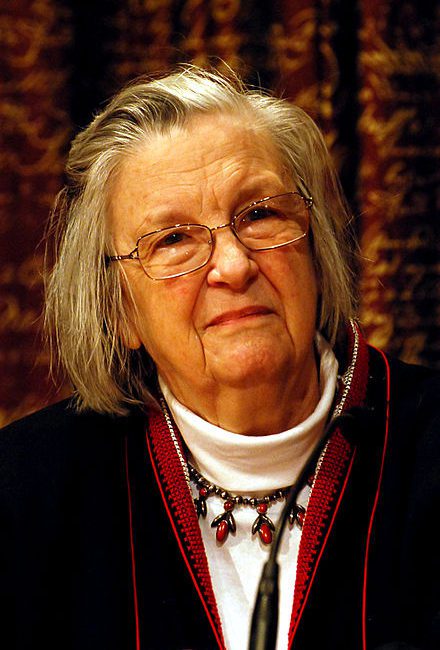When communities share resources, it promotes economic stability
Women’s history month’s origins can be traced back to 1981 when Congress passed a resolution that designated the week of March 7, 1982, as “Women’s History Week.” It was requested of President Reagan to issue a proclamation “calling upon the people of the United States to observe such week with appropriate ceremonies and activities.” Following this, Congress passed resolutions yearly for the next five years to designate one week in March as “Women’s History Week.” In 1987, Congress passed a resolution officially making the month of March “Women’s History Month.”
The proclamations made in the 80s were made to celebrate the efforts and contributions that have been made to the U.S. and to applaud the amazing achievements made by women throughout the country’s history.
Elinor Ostrom- A Woman of Firsts
Elinor Ostrom is the first woman ever to receive a Nobel Prize in economics. Ostrom is a political economist and in 2009 obtained a Nobel Prize in Economic Sciences. She was awarded it for debunking the belief that natural resources, when collectively used, would be depleted because of the self-interest of the individual. She proved that communities that share natural resources develop rules for nurturing and caring for the resources. This in turn promotes economic sustainability. She is the author of Governing the Commons, and in her book, she demonstrates that communities can effectively manage their natural resources without government control or private ownership.
Elinor Ostrom’s Story
Elinor Ostrom was born in Los Angeles on August 7th, 1933. She graduated with honors from the University of California, Los Angeles with a degree in Political Science, and in 1962 and 1965, respectively, she received her M.A. and a Ph.D. in Political Science. She continued in academia as a professor at Indiana University. Ostrom was awarded the honor of Distinguished Professor and was named the Arthur F. Bentley Professor of Political Science. While at Indiana University Ostrom and her husband, a political scientist, began the Workshop in Political Theory and Policy Analysis where she began research on the collective use of common-pool resources. Ostrom’s view on public policy was different from that of the mainstream and came to be recognized as a different school of thought in public choice theory.
Elinor Ostrom also served on the Arizona State University faculty where she received the title of Research Professor and the founding Director of the Center for the Study of Institutional Diversity. She was able to accumulate a large amount of success as an author by publishing books on organizational theory, political science, and public administration. In 1990, Ostrom released Governing the Commons in which she shed light on how economic principles and frameworks could achieve social organization most successfully.
In 2009, Elinor Ostrom reached the apex of her career when she received the Nobel Memorial Prize in Economic Sciences. This made her the first woman in history to receive this award. The award acknowledged her research and work and her criticism of economic governance in regard to the public. This research stated that individuals could successfully manage their own property without government interference.
After a battle with pancreatic cancer, Elinor Ostrom sadly passed away on June 12th, 2012. The legacy she left behind is immeasurable.
Information from www.famouseconomists.net
Read more from NEST here!

